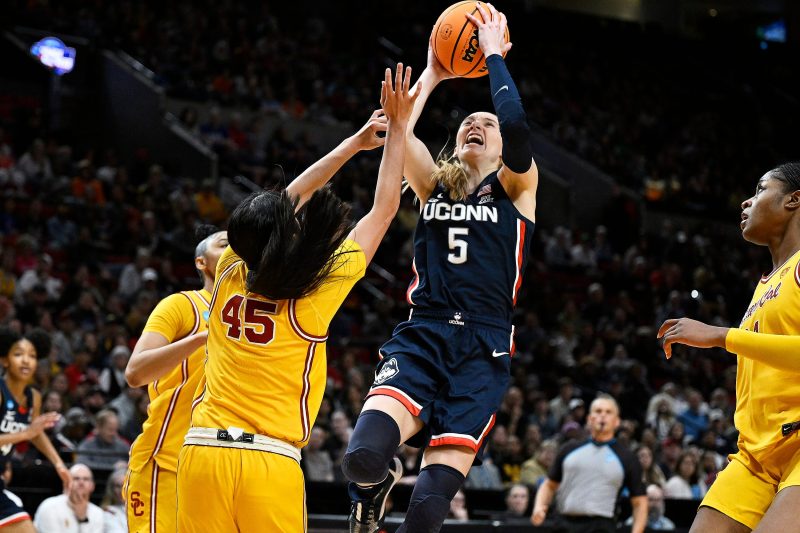The NCAA Division I Board of Directors on Tuesday afternoon formally proposed that the association create a revenue distribution for schools and conferences based on teams’ performance in the women’s basketball tournament.
The move has been eagerly anticipated by women’s basketball coaches and administrators as the sport has exploded in popularity in the past few years and the NCAA has been seeking to address financial and resource inequalities between the men’s and women’s basketball tournaments that were brought to light during, and after, the 2021 events.
The proposal likely will have to be reviewed by the NCAA Board of Governors, which oversees association-wide matters, including finances. And it will need to be approved in a vote by all Division I members at January’s NCAA convention. If passed, schools could be begin earning credit for performance in the 2025 tournament, with payments beginning in 2026.
The NCAA’s new — and greatly enhanced — television contract with ESPN that covers the women’s basketball tournament and dozens of other NCAA championships is providing the money for the new payments. The deal is for eight years and $920 million, with $65 million of the average annual value of $115 million being attributed to the women’s basketball tournament by the NCAA.
Schools’ play in the Division I men’s basketball tournament has been rewarded for years through performance-based payments that the NCAA makes to conferences, which, in turn, share the money among their members.
On a dollar basis, the amount of money in the women’s tournament-performance pool, would be a fraction of the amount in the men’s tournament pool. Just over $171 million was to be distributed in April 2024 based on men’s basketball tournament performance, according to the association’s Division I distribution plan. Based on the value of the ESPN package being attributed to the women’s tournament, the percentage of that amount that would be allocated to the performance pool would be greater on the women’s side.
“It is absolutely a positive thing. We’ve really pushed hard for unit distribution so that everyone understands the value of our game,” Texas A&M women’s basketball coach Joni Taylor said Tuesday morning, in anticipation of the board’s action, while working in Paris as an assistant coach for the U.S. Olympic women’s basketball team.
“When you look at just the last few years, the numbers that we’ve drawn, the fans, the crowds, the dynamic players that we have, we absolutely need unit distribution. I think it lets our presidents, athletic directors and fans know the value.
“To be able to make money off those NCAA tournament games is definitely a step in the right direction. I don’t think we expect to get what the men get, that’s never been our goal. Our goal is to get a percentage that’s fair and right for where we are right now.”
The revenue pool for the men’s basketball tournament-peformance fund has been based on a percentage of the enormous sum the NCAA gets annually from CBS and now-Warner Bros. Discovery for a package that includes broadcast rights to the Division I men’s basketball tournament and broad marketing rights connected to other NCAA championships.
For the association’s 2024 fiscal year, the fee for those rights was set to be $873 million, according to its most recent audited financial statement. It’s scheduled to be $995 million for the 2025 fiscal year, according to the statement.
In April 2024, the NCAA was set to distribute nearly 20% of the TV/marketing rights payment based on men’s basketball tournament performance, according to the association’s Division I distribution plan. That money is awarded to conferences based on their teams’ combined performance over the previous six years.
Under Tuesday’s proposal and based on the average $65 million value attributed to the women’s tournament, about 23% initially would go the performance pool.
Schnell reported from Paris
